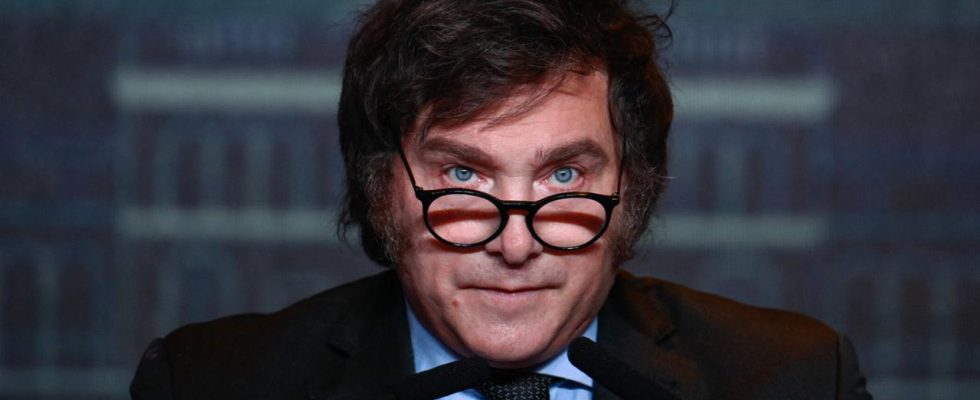Argentina’s newly elected President Milei has announced radical reforms – a kind of shock therapy for the country. Many hope that their lives will be better afterwards. But the country is facing turbulent times.
Felipe Oliveira is left in the dust. He stores bags full of it in his 100 square meter workshop in the north of Buenos Aires. Emergency rations for what lies ahead for Argentina, says the 72-year-old entrepreneur. The dust is a raw material for brake pads that he produces in his small factory.
“We are facing cuts and retrenchments. I know that the next few months will ruin me. It wouldn’t be the first time,” said Oliveira. “That’s why I stocked up on raw materials so I could get back up and start again on the market.”
“Seeing this Argentina hurts me”
Argentina’s newly elected President Javier Milei has announced that he will prescribe shock therapy for the country. That’s exactly why brake producer Felipe Oliveira chose him. His factory is located on the edge of one of the largest slums in the capital’s densely populated suburban belt.
“II didn’t choose Milei with joy. But the others lied to us, they promise nice things that they don’t keep,” says Oliveira. He sees it every day. The poverty, the misery, the young people who sell drugs. “Seeing this Argentina hurts me .”
A kind of reset with a chainsaw
More than 140 percent inflation, 40 percent poverty, things just can’t go on like this, he says. The libertarian economist Milei, on the other hand, promises to do everything differently than the hated “caste,” as he calls the long-established politicians. A kind of reset with a chainsaw: he wants to massively cut back the over-indebted state, privatize public companies, including the oil company YPF, and eight of 18 ministries are to be dissolved – as is the central bank.
“At stake are the rights of the poorest”
“It is likely that we will have to endure six tough months, but they will be the basis for Argentina’s restart,” said Milei. “If we don’t do that, things will be even worse than if we fix the economy once and for all.”
That’s exactly what Augustin Lopez Solari doesn’t believe. The priest works with children and young people in the poor neighborhood of Villa 31. Reforms, yes, but they have to be designed in a socially acceptable way, otherwise too many would be left behind, he says.
“At stake are the rights of the poorest and social justice, because the state is not only inefficient, it provides important services that people depend on. What is at stake for me is social cohesion as a society .”
There isn’t much time left
On the other hand, there were positive reactions on the international markets – and things remained comparatively quiet in the country too. The feared total collapse of the national currency, the peso, which Milei had repeatedly described as as worthless as “excrement” and would like to be replaced by the US dollar as a means of payment, did not materialize. Instead: more moderate tones and a protocol meeting with the incumbent head of state Alberto Fernandez, which is intended to signal an orderly handover of office.
There isn’t much time left anyway, Milei will be sworn in in just over two weeks. And yet there seems to be a kind of calm before the storm, believes economist Juan Manuel Telechea: “The measures that are needed to curb inflation are initially hitting the economy and people’s incomes very hard. That will initially push inflation down Push higher, which will lead to resistance.”
Milei’s biggest problem is that his radical reforms contradict his lack of political support. He is an outsider and does not have a majority in Congress, but he needs them to implement his plans.
Argentina faces uncertain times
Even before he took office, Milei’s team had already resigned for the first time – Emilio Ocampo, the man pompously introduced in the election campaign for Milei’s most radical plans – the closure of the central bank and the introduction of the US dollar – resigned. Instead, the name of a close confidant of ex-President Maurico Macri is now making the rounds for the office of economics minister. The caste sends its regards. One thing is certain: Argentina faces uncertain and turbulent times.

